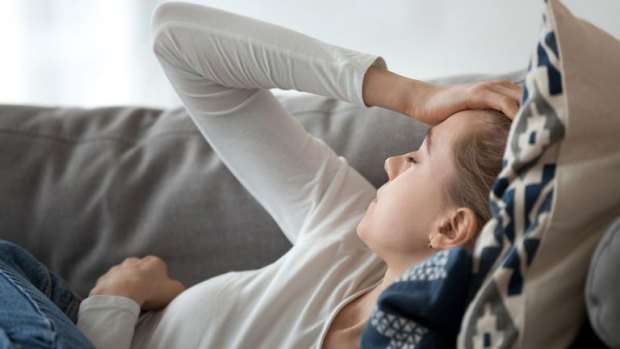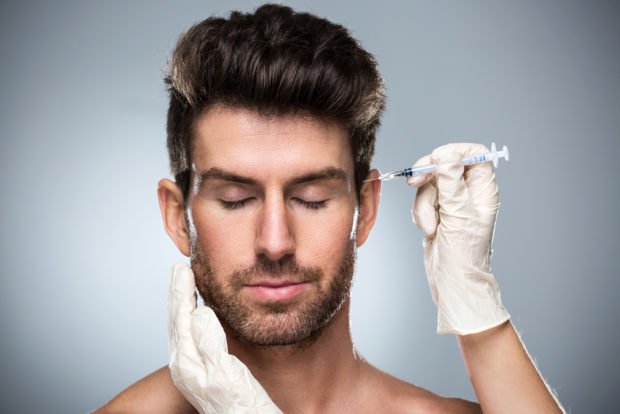When you hear Botox, the first thought to likely cross your mind are likely images of wrinkles and frozen, expressionless faces. However, there’s more to Botox than addressing those pronounced frown lines. In fact, for Kristin Chenoweth, Botox is one of the ways that she finds relief from her chronic migraines.
Kristin Chenoweth’s Battle With Chronic Migraines
“I suffer from chronic migraine, and it has really impacted my life and career…When people say, ‘Oh, you just have a bad headache.’ I want to like actually [punches the air.]
You know the pain, and you know how debilitating it is, and we love what we do or just whatever our passion is. So how do we continue to do that? I didn’t want to retire. This was really serious and affecting me. “ Kristin Chenoweth, NewBeauty
Chronic migraines affect about 2% of the global population and around 4% of people in the United States. Unlike episodic migraines that last for a few hours and only occur again after a few weeks or months, chronic migraines last much longer and occur more frequently.
While there has yet to be a definite conclusion as to what causes chronic migraines, research has suggested that chemical imbalances, genetics, brain tumors and injuries as well as underlying neurological disorders could be to blame.
What are the triggers?
Individuals who have been dealing with chronic migraines for some time may have noticed that certain external factors, be it food, behavior or environment, may trigger a migraine episode and identifying these triggers can help one better manage their condition. Migraine triggers include anxiety, caffeine use, certain food and sleep issues.
 Speaking to NewBeauty, Kristin Chenoweth revealed that she experienced her first migraine at 25 while on stage and her first thought was: ‘Do I have a brain tumor?’. Chenoweth added that was struggling with her vision, which is a common migraine symptom. Additional symptoms include feeling nausea/vomiting, dizziness, sensitivity to light, sound, and smell as well as moderate to severe head pain.
Speaking to NewBeauty, Kristin Chenoweth revealed that she experienced her first migraine at 25 while on stage and her first thought was: ‘Do I have a brain tumor?’. Chenoweth added that was struggling with her vision, which is a common migraine symptom. Additional symptoms include feeling nausea/vomiting, dizziness, sensitivity to light, sound, and smell as well as moderate to severe head pain.
“Lights triggered it, which is interesting since I’m a performer.” Chenoweth says, speaking about her first migraine,
“I crawled off in our intermission, and I thought, ‘What do I have? What is wrong with me?’ And that began my journey with chronic migraine, and I thought ‘I’m going have to retire.’ Then I won the Emmy and all the paparazzi lighting threw me right into it, and I had to go to the hospital.”
How do migraines affect the body?
According to various research, migraines can affect the body in a number of ways;
- Those with a history of migraines are four times more likely to develop Alzheimer’s disease.
- Those who deal with chronic migraines are twice as likely to develop depression and anxiety.
Botox for chronic migraines
“When I started getting the treatments, I was probably in my early 40s. It has not cured me—I want to be clear—but it is preventative.”
While you may think that Chenoweth found luck in regards to the effectiveness of Botox on her migraines, plenty of research has indicated that Botox injections are a great way to manage those debilitating headaches.
During a migraine episode, the body releases neurotransmitters that carry pain signals to the brain. To manage this, Botox injections work by interfering with this transmission, helping to alleviate you of the pain.

pikselstock/shutterstock
If you’re curious about how effective Botox is for migraines, a study published in Therapeutic Advances in Neurological Disorders concluded that Botox was effective in reducing monthly headache days and improving the quality of life in individuals dealing with chronic migraines.
Managing your chronic migraines
Speaking to Johns Hopkins Medicine, plastic and reconstructive surgeon Sashank Reddy, M.D., Ph.D shared that botulinum toxin injectables are part of a comprehensive suite of options that neurologists and headache specialists have for treating chronic migraines. He added that while no single treatment can help with migraines, the best approach is one that includes several different treatments.
In addition to Botox treatments, Kristin Chenoweth is also conscious of her triggers, sharing that alcohol and flying are common triggers for her migraines.
Due to her profession, Chenoweth is constantly flying, but she’s turned to meditation to help her. Additionally, she also shared that she follows a low-fat diet, which is recommended as one study found an association between low sodium intake and reduced risk of headaches amongst people dealing with migraines.
Want to know more?
People have experimented with a variety of ways to help relieve migraines and headaches. In fact, these smoothies may offer some much-needed pain relief.
References
Amer, M., Woodward, M., & Appel, L. J. (2014). Effects of dietary sodium and the DASH diet on the occurrence of headaches: results from randomised multicentre DASH-Sodium clinical trial. BMJ open, 4(12), e006671. https://doi.org/10.1136/bmjopen-2014-006671
Escher, C. M., Paracka, L., Dressler, D., & Kollewe, K. (2017). Botulinum toxin in the management of chronic migraine: clinical evidence and experience. Therapeutic advances in neurological disorders, 10(2), 127–135. https://doi.org/10.1177/1756285616677005





![women [longevity live]](https://longevitylive.com/wp-content/uploads/2020/01/photo-of-women-walking-down-the-street-1116984-100x100.jpg)









